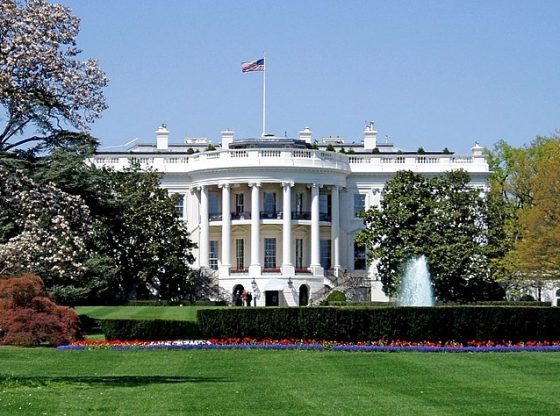“The last best hope for man on earth.” Ronald Reagan used that phrase many times to describe the United States. Our 40th president was on to something. So let’s imagine a talented young person in the world today, looking for hope. Or someone with money to invest. What’s the country that will best receive brains and ambition? Or best allow for the growth of capital? If we spin the globe in search of prospective homes, our eye is likely to return to the country that Reagan, in his time, made even greater.
But now, as a thought experiment, let’s cast our hopeful eye elsewhere, starting with China. A country of smart and hard-working people, done extraordinarily well in recent decades—but it’s hit a ceiling. Why? Bad governance, getting worse. Whereas once the country’s “Market-Leninist” system allowed for rapid economic growth, and even a modicum of personal freedom—albeit at the expense of political expression—the Chinese Communist Party has reasserted itself. Headline in Politico.eu: “China’s Xi goes full Stalin with purge.” Power has corrupted Xi Jinping absolutely, and that means nobody, and nothing, is safe in China. Scratch that, hope-wise.
Okay, how about Japan? Once another fast-grower, it’s been stagnating for three decades. And it has the bad fortune to be near hostile nuclear powers—China, North Korea, and Russia. Same with South Korea. To the south, Taiwan has even more to fear from China.
We can pause to raise a meta point about Asian countries: their native tongues. The international language of business and technology is English, and that puts non-English speakers at a huge disadvantage. To be sure, much of the Asian business elite speaks English; that skill has enabled the sale, for example, of a lot of Toyotas. But the internet has strengthened the Anglophones; according to one estimate, nearly two thirds of all the websites in the world are written in English. Now we can add AI, which, of course, derives its power from the accumulated knowledge of the globe, and that’s mostly in English. So the English-based AIs will surge even further ahead.
The hegemony of English is good news for one Asian country, India. Yes, centuries of British colonization had their downside, but the upside is the predominance of citizens ready to join the global jet stream.
Turning toward Europe, we come to Russia. But no need to waste time thinking about living or investing in the country that veers between Stalinism and Tsarism—with aggressive bloody wars being the common link.
Then there’s Israel, once a start-up nation, but since riven with country-paralyzing, tech-discouraging political disputes. And that was before the Hamas attack on 10/7 and the subsequent fighting. In the vivid words of The New York Times’Tom Friedman, “Gaza could end up a giant, sucking chest wound that overstretches Israel militarily, economically and morally.” Indeed, international mandarins offer little hope for the situation, beyond the usual promises of limited cease fires and doomed peacekeeping missions. (This author has suggested an outside-the-nine-dots solution for Gaza, which, admittedly, would require a substantial shift in the Overton Window of diplomatic and technological possibility.)
So now, what of Europe? That continent has been shrinking, economically, for years. It’s been throttled by self-imposed green policies; that choking will worsen as it tightens its bureaucratic noose on AI.
So by process of elimination, we come back to the United States. For sure, we have plenty of warts; most notably, there’s an impending political crisis. It seems safe to predict that whoever is declared the winner in the 2024 presidential election will face a legitimacy crisis, as election integrity is questioned, protests erupt, and who knows what else.
However, thanks to the Constitution, we have a saving grace: the federalist system, aka, states’ rights. So if folks in, say, Florida or Texas see something they don’t like in New York or California, they can take steps to insulate themselves from it, or enact policies to do the opposite. And vice versa. Indeed, up to a point, both red and blue states can nullify noxious federal action.
In fact, no matter who wins next year, frustration with central government is so that we’re likely to see a lot more nullification. Does that sound like anarchy? It’s not. It’s ordered liberty, just as the Framers intended. What’s disordered has been the over-centralization of the system in the past few decades. The rollback, the return to liberty for both left and right, will be what keeps America hopeful.
And hopefully, this is how Americans will reconcile to the election of the “wrong” person or party next year—they’ll take it to the states. The divergent states will seek to minimize the power of the federal government, whoever’s in charge, and instead optimize diverse state-based opinions on taxation, abortion, and all the other hot buttons. It’s hardly a perfect system, but it is a free system. That’s what free people, and free enterprise, are always questing for. And when they find it, they make it the last best hope for man, and woman, on earth.
James P. Pinkerton, a former White House domestic policy aide to Presidents Ronald Reagan and George H. W. Bush, and is a former Fox News contributor.
The views and opinions expressed in this commentary are those of the author and do not reflect the official position of the Daily Caller News Foundation.
James P. Pinkerton on December 26, 2023












